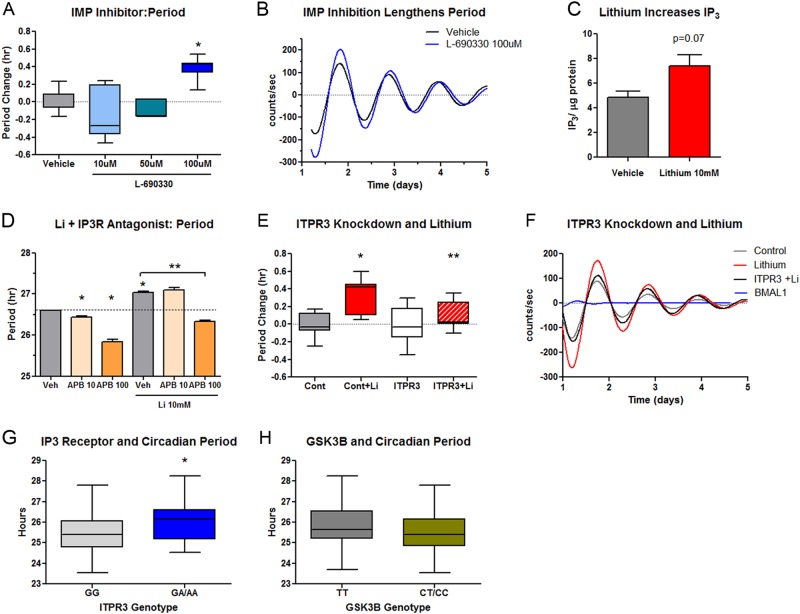Fig. 5.
Inhibition of IMP causes period lengthening. Despite its action as an inhibitor of GSK3, lithium lengthens circadian period at high concentrations, perhaps indicating circadian effects of IMP inhibition. a Selective inhibition of IMP with L-690330 causes period lengthening (N = 6–9/group). b Representative trace of the period lengthening effect of L-690330. c Treatment of mouse fibroblast cell lines with lithium for 24 h caused a nominal increase in IP3 that trended towards statistical significance (N = 7-8/group). d Antagonism of the IP3 receptor shortens period and reverses the period lengthening effects of lithium (N = 3/group). e Knockdown of the IP3 receptor gene Itpr3 in NIH3T3 cells (N = 8–14/group) blocks the period lengthening effect of lithium (10 mM). f Representative traces of Itpr3 knockdown experiment. Itpr3 knockdown attenuates the period lengthening effect of lithium. The loss of rhythm from Bmal1 knockdown confirms efficient siRNA transfection. g In cells from BD patients, ITPR3 genotype at the variant rs11758031 predicts circadian period after treatment of the cells with lithium (N = 48 GG and 14 GA/AA, p < 0.01), whereas h GSK3B genotype at rs334558 (−50T/C) does not (N = 23 TT, 38 CT/CC, p = 0.65). Box plots indicate minimum, maximum and mean values. Error bars represent SEM. * Indicates p < 0.05 vs control. ** Indicates p < 0.05 vs lithium treated

